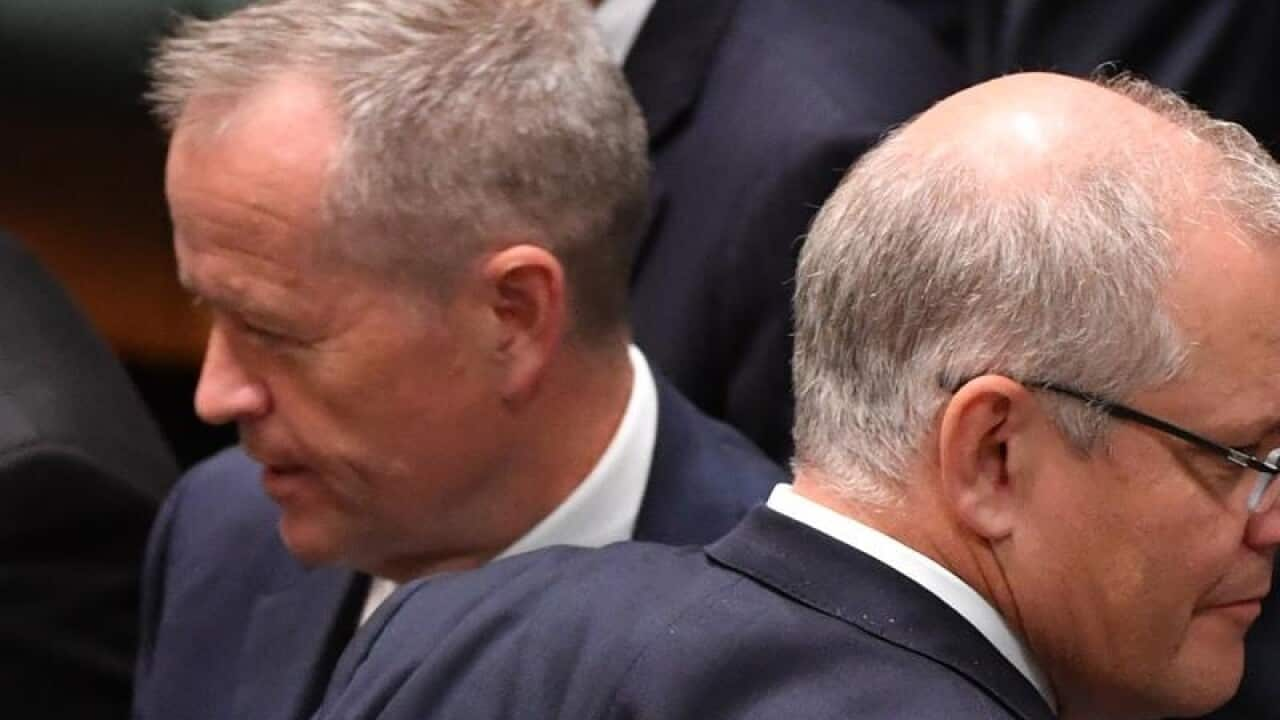Heading into a federal election year, there is one stand-out question.
Will the Labor government's seat numbers be in the 80s or the 90s?
It is hard to conceive of a scenario where Scott Morrison, the reluctant last-man standing after the 2018 Liberal leadership bloodbath, retains government.
But let's have a go.
Morrison has set himself a path to an election on May 11 or 18.
A short session of parliament will give him a platform to show he is still in charge.
But Labor, the Greens and crossbenchers will be seeking to flex their muscle.
A week of Senate estimates hearings will follow, where Labor and the Greens will do their utmost to expose more of the failings of a dying government and coalition senators will seek to highlight policy successes.
Then an April 2 budget will outline a surplus for the first time in 12 years and a raft of sweeteners targeted at the most disgruntled voters and cheesed off regions of the nation, as well as some welcome news for the Liberal-National coalition's base.
Morrison's argument will be a simple one.
Only the coalition can manage the budget, the economy and national security.
Managing the economy, he says, is not just a matter of numbers - a strong economy means the government can pay for schools, hospitals, Medicare, pensions and roads.
It's the same argument voters have heard from Liberal leaders in the past. And it is a logical argument.
The return of the Victorian state government led by Labor's Dan Andrews showed what can happen when, amid immense chaos and scandal, a leader remains focused on the basics.
The federal coalition in 2018 was battered by sex scandals, allegations of bullying of female MPs, the loss of its majority in a by-election, and questions around its commitment to climate action and justice for refugees.
The key problem for Morrison is that while voters can switch off from scandal as the white noise of politics, they can't tune out when parties change leaders midstream.
The party disunity is there for all to see. Day after day.
And many voters still wonder why Malcolm Turnbull is no longer in office.
Leadership change has been fatal in recent federal elections - a minority parliament under Julia GIllard in 2010, a massive loss for Kevin Rudd in 2013 and a near-death experience in the case of Turnbull's one-seat win in 2016.
And this destructive experience will almost certainly be wreaked on the coalition in May.
Labor has had the same leader for five years, Bill Shorten, the longest serving opposition leader since Kim Beazley.
While voters have never rated him in terms of personal approval, they recognise he leads a stable team with a strong sense of mission.
The Labor brand remains sound after more than a century of evolution.
Policies have been released including a number of controversial propositions such as winding back negative gearing concessions and some tax breaks for self-funded retirees.
Morrison pitches Labor as planning an assault on Australians' way of life.
As he said in his New Year's message: "As we go to this year's election you will see there will be a clear choice to protect what you have and to ensure that you can seize the opportunities of what you want for you and your family."
However Shorten hit the nail on the head with his message.
"In 2018, Australians had every right to feel let down by politics, every right to feel that too many of their elected representatives were only in it for themselves.
"In 2019, all of us who have the remarkable privilege to serve in the federal parliament have a responsibility to do better, to rebuild faith in our democracy by demonstrating that politics can still make a difference to the daily lives of our fellow Australians."
One other phenomenon to watch will be the fate of minor parties.
With such a high level of disenchantment with Labor and the coalition, an estimated one in three voters is likely to turn to independents and small parties.
However, their chances of success in the Senate will be limited by the higher vote quota needed to succeed in a half-Senate election and the massive resources and people-power needed to win a lower house seat.
Voters can expect the rolling carnival starring the likes of billionaire Clive Palmer and One Nation's Pauline Hanson to liven up 2019.









